
Intellicast S6E12: Was the IA Annual the Best Conference Ever?
May 8, 2023
Facebook, Twitter, TikTok, Oh My! What Social Media Platforms Are Moms Using?
May 11, 2023In May, we celebrate both Mental Health Awareness Month and Mother’s Day! These two holidays give cause to take a closer look at how moms are taking care of their mental health. In our latest round of research-on-research, we asked respondents about their experience with several mental health issues. In this blog, we will be looking at responses specifically from mothers.
We are classifying moms in this blog as the average and then taking a closer look by single moms and married moms:

Overall, we found that single moms are the most likely to be bothered by the listed problems while married moms are the least likely to be bothered by these issues. Unfortunately, single moms are 15% more likely to feel bad about themselves than married moms (10% higher than the overall average). According to the Centers for Disease Control and Prevention, about 1 in 10 women in the United States reported symptoms that suggest they experienced an episode of major depression in the last year. The findings of our research are slightly higher than that.
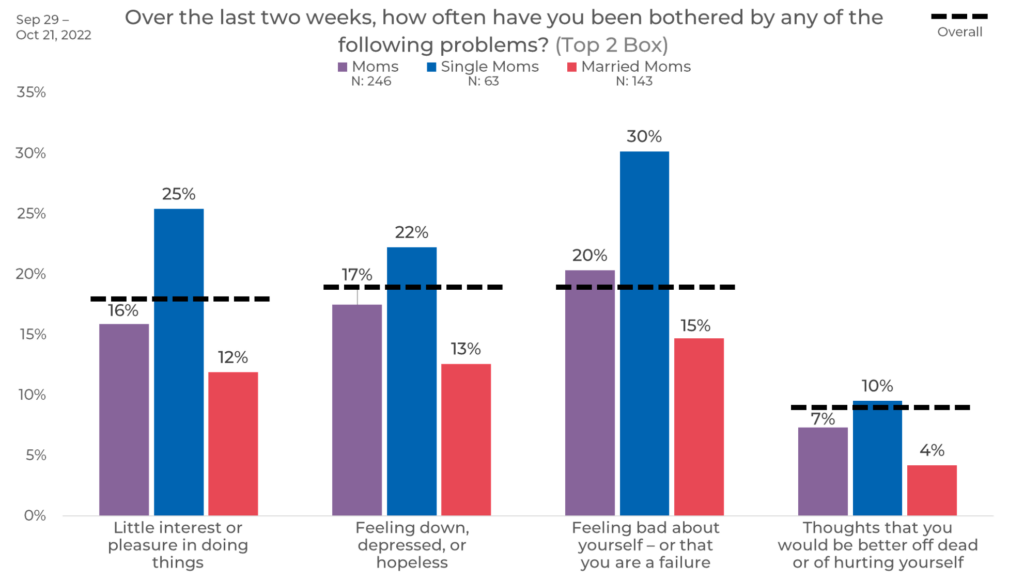
We also found that single moms are 11% more likely than married moms to have a poor appetite or overeat and 13% more likely than married moms to have trouble falling asleep or sleeping too much. Married moms are 3% more likely to feel tired or have little energy.
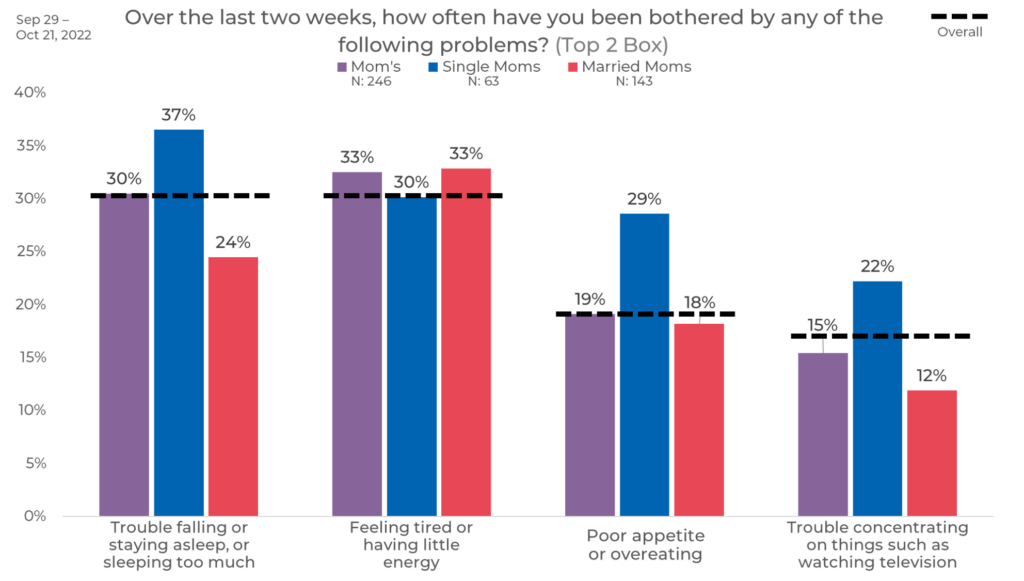
Symptoms of Mental Health
When looking at symptoms of mental health, we see that single moms are 14% more likely than married moms to be highly symptomatic (8% more likely than the overall average.) They are also 18% less likely than married moms to say they have no symptoms at all.
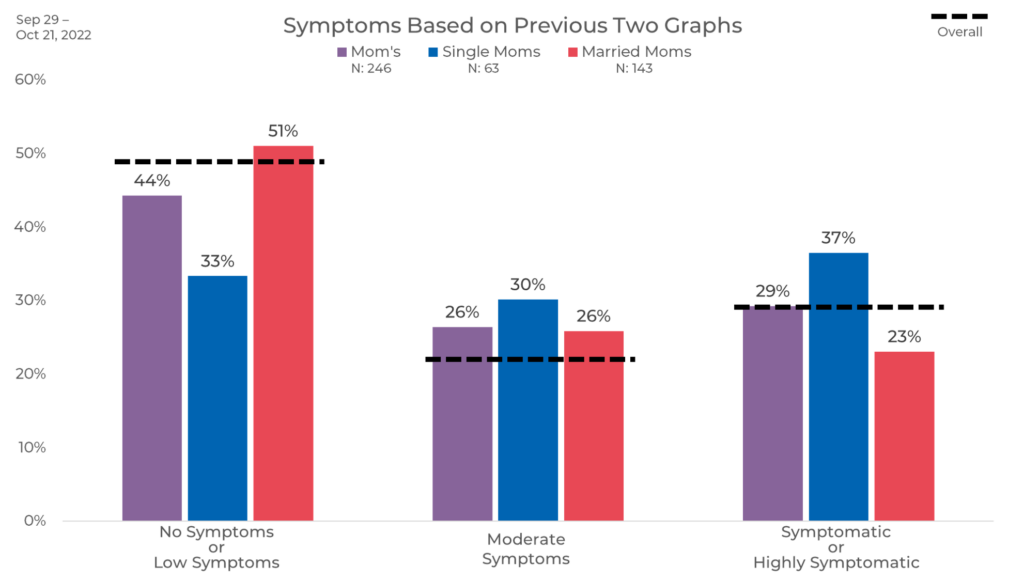
Diagnoses
In this round of research-on-research, we also asked moms if they have ever been given a mental health diagnosis by a physician. Single moms are 16% more likely than married moms to have been diagnosed with depression and 13% more likely than married moms to have been diagnosed with PTSD.
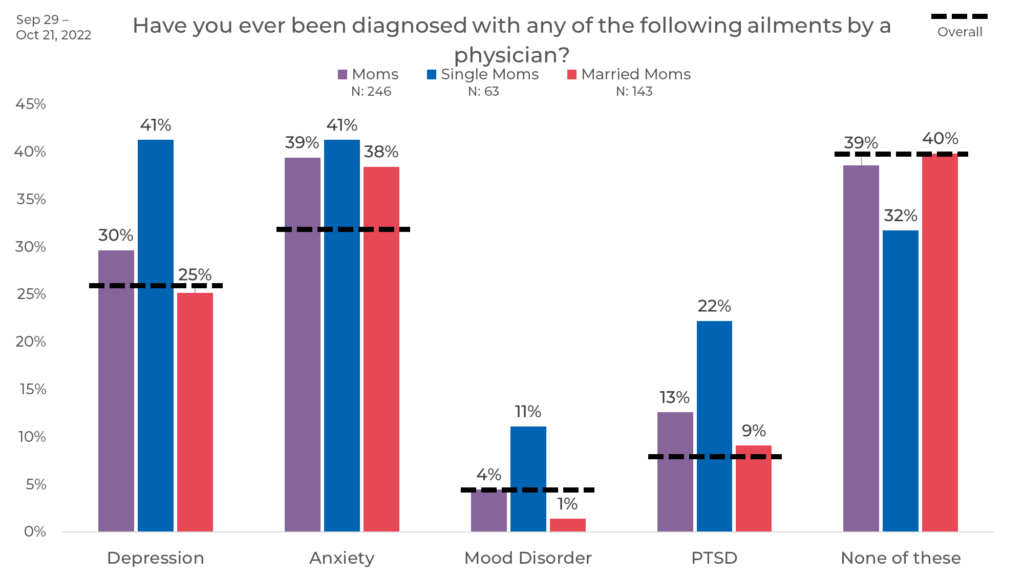
Steps for Bettering Mental Health
We wanted to know if moms are taking steps to better their mental health. Here, we are considering taking steps to better your own mental health as participating in activities such as reading, exercise, yoga, etc. Single moms are more likely than married moms to be seeing a professional to better their mental health, whether it is a therapist or a psychiatrist.
Essentially, single moms are more likely to find ways to better their health through outside sources (the first three columns.) Married moms are more likely to take personal steps to better their mental health.
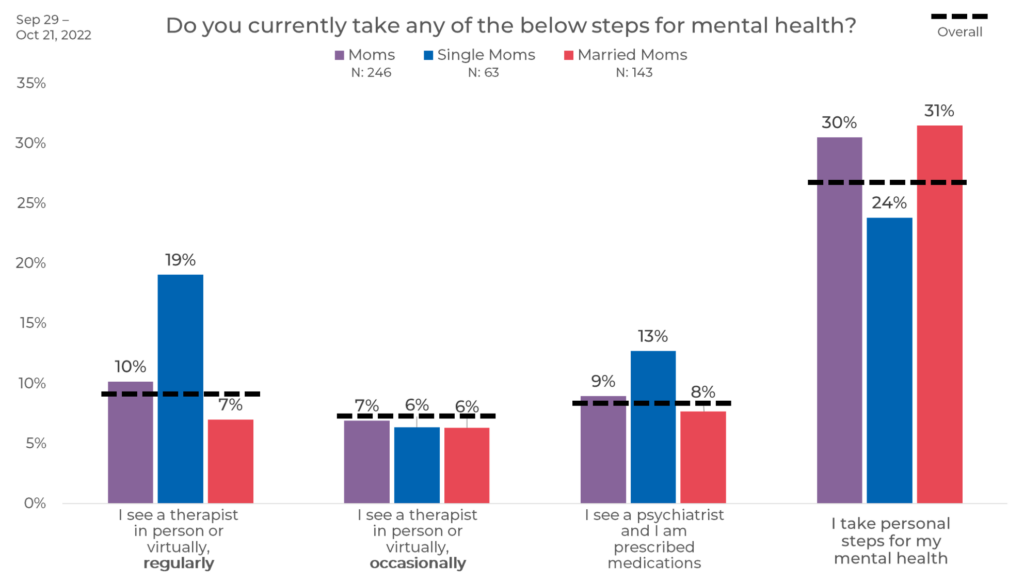
Continuing on these findings, we found that more single moms would like to go to therapy but nearly half can’t afford it (though we did have a smaller sample size.) Married moms are more likely than the overall average to say they do not need to see a therapist (25% more likely than single moms.) The cost of mental health resources seems to be a barrier considering both single and married moms are above average to say they are not able to afford therapy.
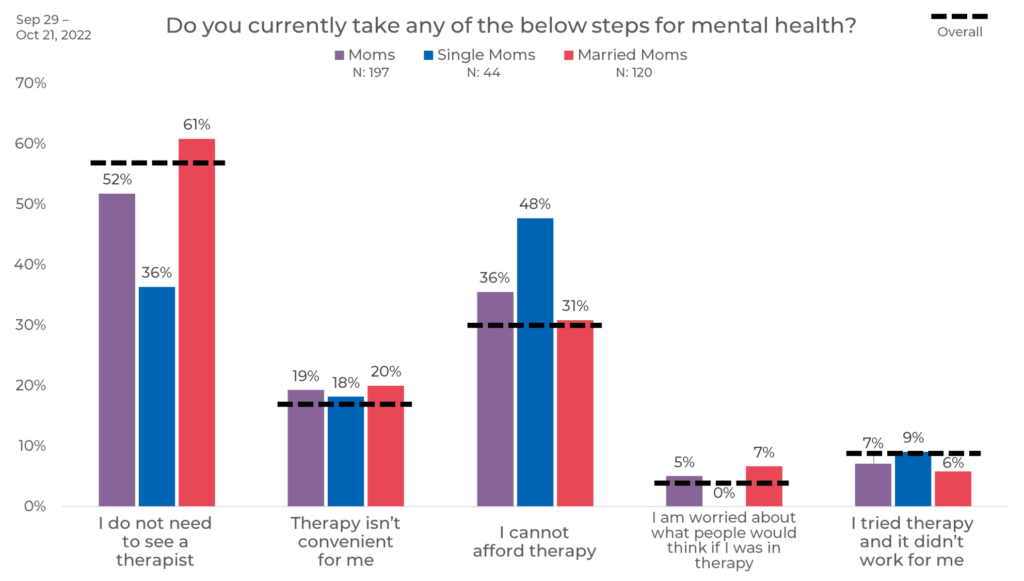
Panel
When looking at responses by panel, we see that Panel A is more likely to have moms who have struggled with the listed problems. Respondents in Panel A are 4% more likely to feel down, depressed, or hopeless, and 10% more likely to feel bad about themselves. This can be due to differences in panel makeup, management, and more. For instance, Panel A may have more single moms than Panel B, which we know are more likely to struggle with these mental health issues.
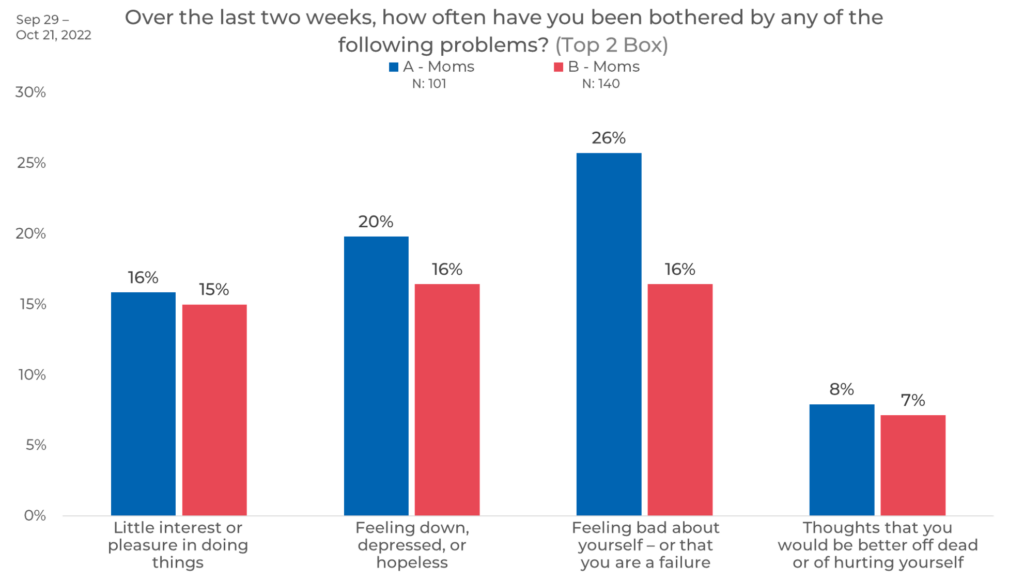
As we see in this blog, consumer experiences vary greatly by both demographic and panel. This can have a significant impact on your data! For example, if someone had used only Panel B, they might think fewer moms struggle with mental health issues than actually do. This is why strategic sample blending is the best practice to ensure any changes in your data are due to shifts in the market, not inconsistencies in your data.
P.S.—It’s also best practice to celebrate the moms in our lives whether they be our mothers, sisters, wives, partners, or your friendly neighbor! So, mark your calendars for May 14th!
If you’re interested in learning more about mental health, tune in for Brandtrust’s upcoming webinar where we’ll dive into mental health topics and findings from our partnered research. You can register here.




